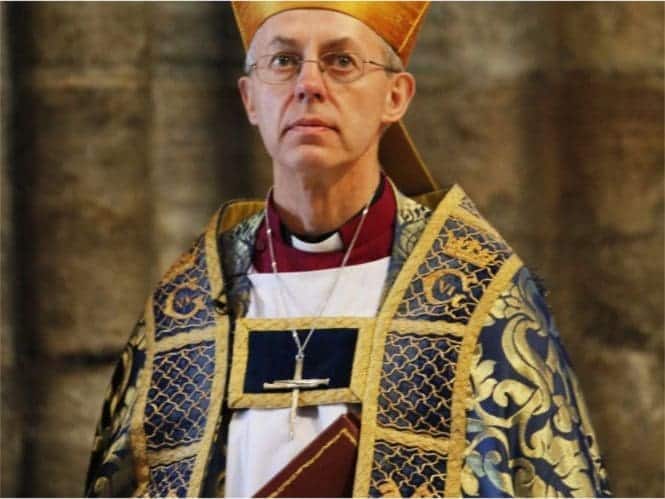Following an interview in which former Archbishop of Canterbury Justin Welby attributed his failure to address abuse on the scope of the problem, the Church of England issued the following statement.
Anglican Watch reminds readers that, in the Episcopal Church, more than a dozen church officials, including former presiding bishop Michael Curry, ignored the allegations that Episcopal priest Richard Losch sexually assaulted a boy in the mid-1970s.
Meanwhile, the Episcopal Church refuses to hold Curry and other church officials accountable.
The following is reprinted from Episcopal News Service.
On March 30, former Archbishop of Canterbury Justin Welby did an interview with the BBC in which he said he failed to follow up allegations of abuse by John Smyth within the Church of England because the scale of the problem was “absolutely overwhelming.” He added the scale of the problem was “a reason – not an excuse” for his failure to act. Welby was forced to resign over the matter.
What follows is the statement by the Rt. Rev. Joanne Grenfell, the Church of England’s lead bishop on safeguarding matters.
Today’s interview with the former Archbishop of Canterbury, Justin Welby, on BBC’s Sunday with Laura Kuenssberg, will be a reminder to Smyth survivors of their awful abuse and its lifelong effects. I know they continue to be offered support, and we are deeply sorry for the abuse they suffered. First and foremost this must always be about victims and survivors, their needs and what they are asking us to hear and learn.
I stand by my comments, made with the national safeguarding director Alexander Kubeyinje, on the publication of the Makin Review into the church’s handling of allegations against Smyth. We are appalled that any clergy person could believe that covering up abuse was justified in the name of the gospel – a comment highlighted in the Review. The gospel is about proclaiming good news to the poor and healing the brokenhearted.
If anyone comes forward to the church today with a concern, they will be heard and responded to carefully and compassionately by safeguarding professionals according to our clearly set out guidance. General Synod voted in February to further strengthen its guidance on responding to allegations, which will make the reporting process clearer for all who come forward.
In the past 10 years, the church has developed and strengthened its safeguarding policies and practices, making significant improvements in training, national safeguarding standards and external audits, and continues to do so. General Synod also voted in February to set up an external scrutiny body and to look further at models on operational independence.
Every member of the church is responsible for a culture in which victims are heard, responded to well and put first: there is never a place for covering up abuse.
We must learn from this and build future foundations to ensure that the church is as safe as it can be for all who come to worship or to engage with our many services and community projects.


Leave a Reply